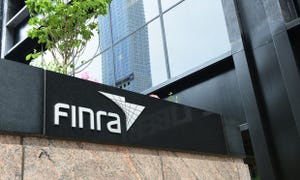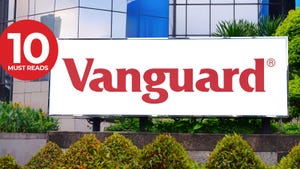Taking the Stage: Why Advisors Should Practice Like EntertainersTaking the Stage: Why Advisors Should Practice Like Entertainers
Use old-fashioned role-playing to prepare for client meetings.
October 4, 2018

By Julie Genjac
Have you ever approached preparing for your client meetings the way entertainers do?To the audience, performances seem effortless, but the reality is that the entire cast and crew practiced for countless hours prior to the first curtain going up.
What if you and your team did dry runs before meeting with your clients? You could create the agenda and meeting materials, and walk through the exact conversation you’re going to have with your clients. Each team member attending the meeting would know exactly what their role is, and you could work out any kinks to ensure you’re representing your practice and reputation in the best light.
The saying that “practice makes perfect” isn’t just something that we should espouse; we should live and breathe this mantra in our daily lives. The use of role-playing exercises can be a uniquely valuable way for advisors to get ready for client meetings, and to ensure that they’re communicating clearly and thoughtfully. By incorporating a few of an entertainer’s techniques, advisors can be better prepared and therefore give the client a better experience.
Prepare Your Props
Create and print or project on a screen your written agenda and meeting materials well in advance of the scheduled meeting. You will immediately realize if you’re missing a document, or if your agenda is too robust. You will then have time to make changes without your clients sitting in the lobby waiting for you.
I always like to say, “Your client review documents should never be ‘hot off the press’”—meaning that you shouldn’t grab warm papers from the printer as you walk to the lobby to greet your clients. That last-minute process just invites the opportunity for mistakes. Finding a typo or flaw in your meeting agenda while the meeting is in progress can immediately and irreversibly take away your focus, interrupt the flow of conversation or, worst of all, make the client doubt your commitment to the relationship.
Remember to Rehearse
Schedule time to do a run-through of the meeting with your team and make sure to practice outlining your main agenda points. So, if you have an upcoming meeting with a client to present a financial plan, hold a mock meeting first to talk through the plan. Pretend your client associate is the client, and have them ask questions, as appropriate. When you sit down to meet with your client, it shouldn’t be the first time you talk through their financial plan, just as the cast of a performance would never consider not practicing their lines prior to the curtain being drawn.
Strategize for Success
If the upcoming meeting is with a prospect, push yourself to consider what questions they might ask, and prepare possible answers. Think of the best- and worst-case scenarios for the meeting and consider how you can direct the conversation to have a successful first meeting.
If the upcoming meeting is with a current client, review your past meeting notes to see if there are common themes, roadblocks or success stories. Reflect on the last time you said, “I wish I would have done this or that differently during that client/prospect meeting.” Have you changed your process since those enlightening moments or did you fall back into your old habits? Focus on making these changes when you hold the mock meeting with your team.
Credit the Cast
While no one sets out to poorly introduce their team members, trite introductions such as “Mary joined me six months ago and does a great job—in fact, she runs the show!” can be diminishing of her role. Although the spirit and intent may have been extremely genuine, it can leave the client unclear as to that person’s qualifications or role on the team.
Instead, consider crafting a very deliberate introduction ahead of time like this: “Mary is my right hand when it comes to the operations of our team and I value her opinion. She and I work together on all client situations and you can always speak to her if I’m unavailable.” Immediately, you have given Mary credibility, signified the cohesiveness of the team, and helped your clients continue to see value in what you do.
Learn to Listen
Your clients should have the majority of the speaking time, but remaining quiet can be extremely difficult, especially in an era when the volume, velocity and complexity of information has never been higher. However, mastering the art of listening will serve you extremely well in all interactions, and can be refined through the mock meetings you hold with your team.
Think about the last meeting that a client told you went very well. My guess is that they felt as if they had “the stage” and were truly heard. When your client leaves that meeting feeling like it was a wonderful conversation, they understand that you truly care about them and you “get” them.
Just as the cast and crew of a production works together in advance of, during, and after the show, you and your team have the opportunity to come across as a well-oiled ensemble of professionals by utilizing old-fashioned role-playing to prepare prior to upcoming client meetings.
Julie Genjac is the Managing Director, Strategic Markets for Hartford Funds.
You May Also Like





